By Kennedy Library Archives Staff
In his role as President, John F. Kennedy received many thousands of letters from the public on a range of issues, which has been explored in a series of previous posts related to the Public Opinion Mail in the Kennedy Library’s archives. Among the President’s active correspondents were children, who wrote to him prolifically on a gamut of topics. For our latest Staff Picks display, the fourth in an ongoing series, Archives staff have selected some of their favorite children’s letters to the President. The display is currently up in the Library’s lobby; the virtual version may be seen below!
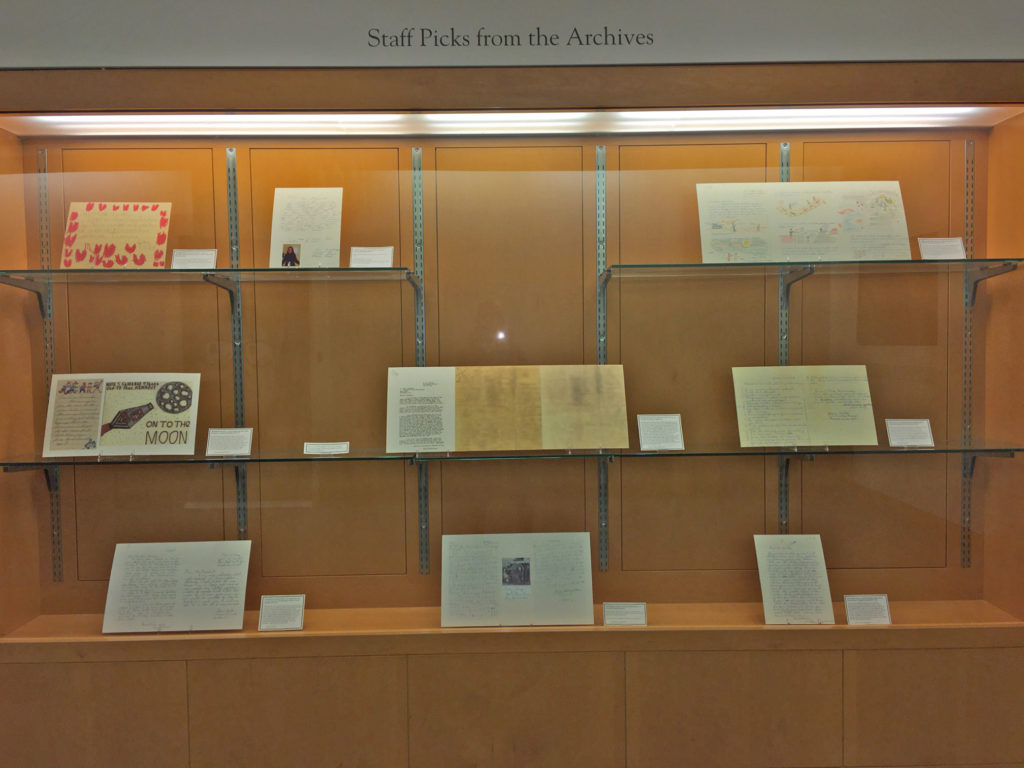
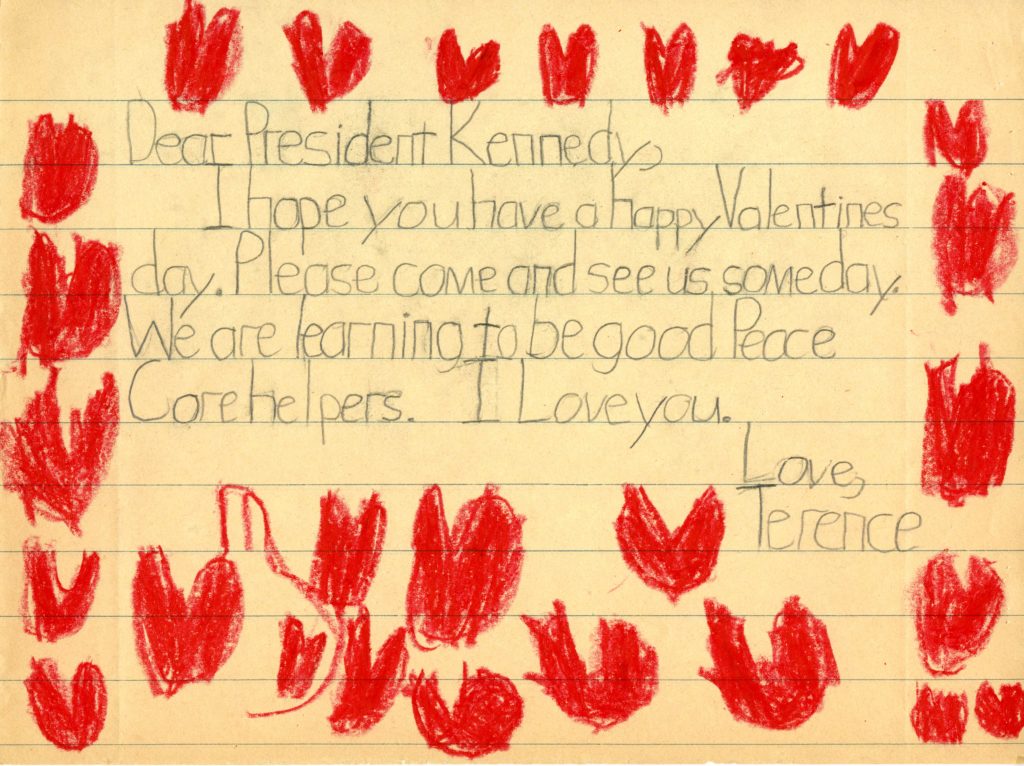
In February of 1962, Carol Sheft’s Yonkers, New York 2nd grade class made Valentine’s Day cards for President Kennedy. I think that they are all quite touching, but this is one of my favorites.
–James, Archives
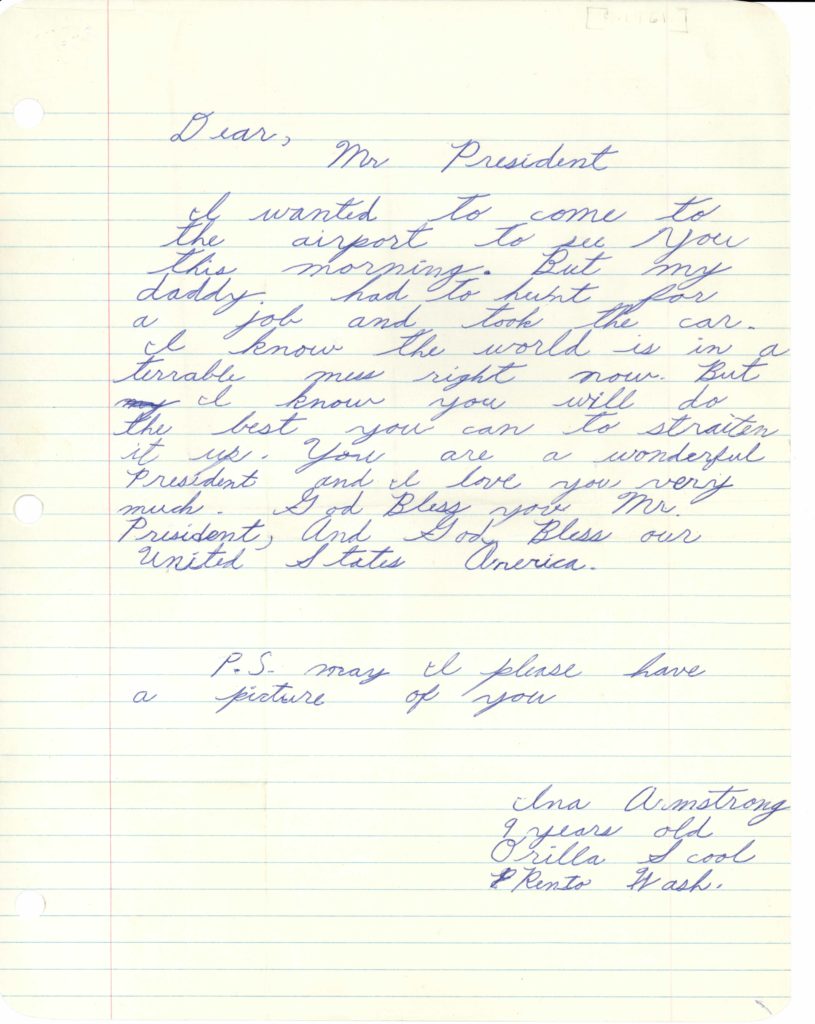
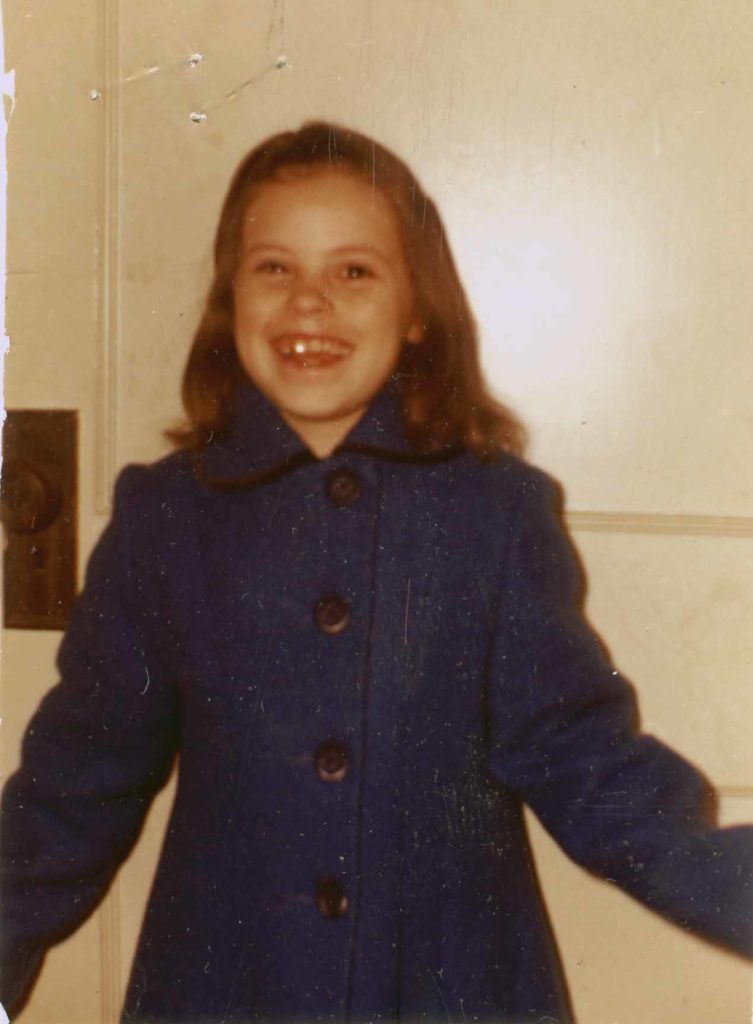
There are three things that stand out in this letter and photo:
1. Ina Armstrong is very cute.
2. Ina Armstrong is very smart.
3. Ina Armstrong is telling us that “the more things change, the more they stay the same.”
–Maryrose, Archives
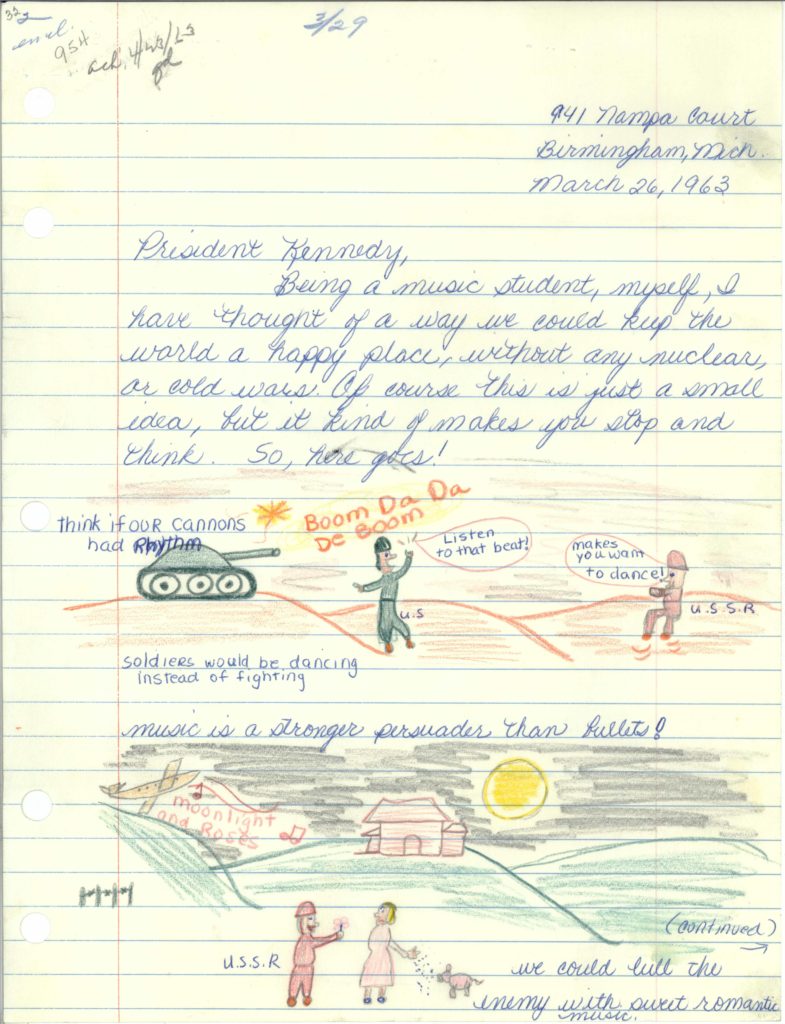
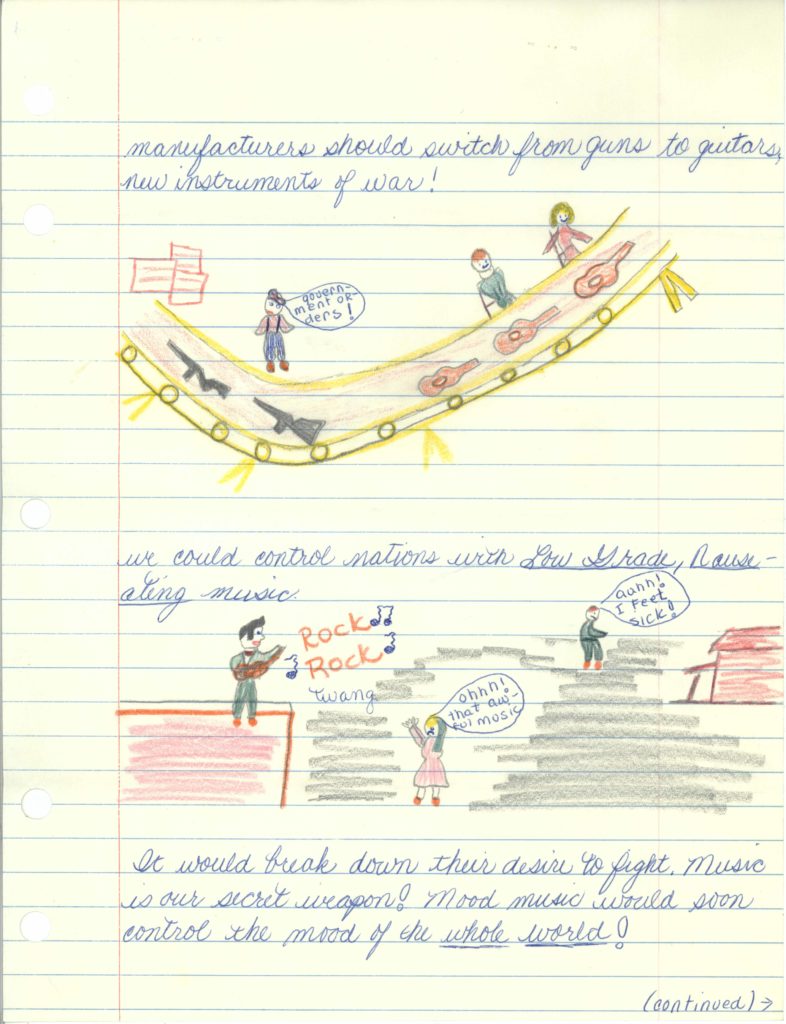
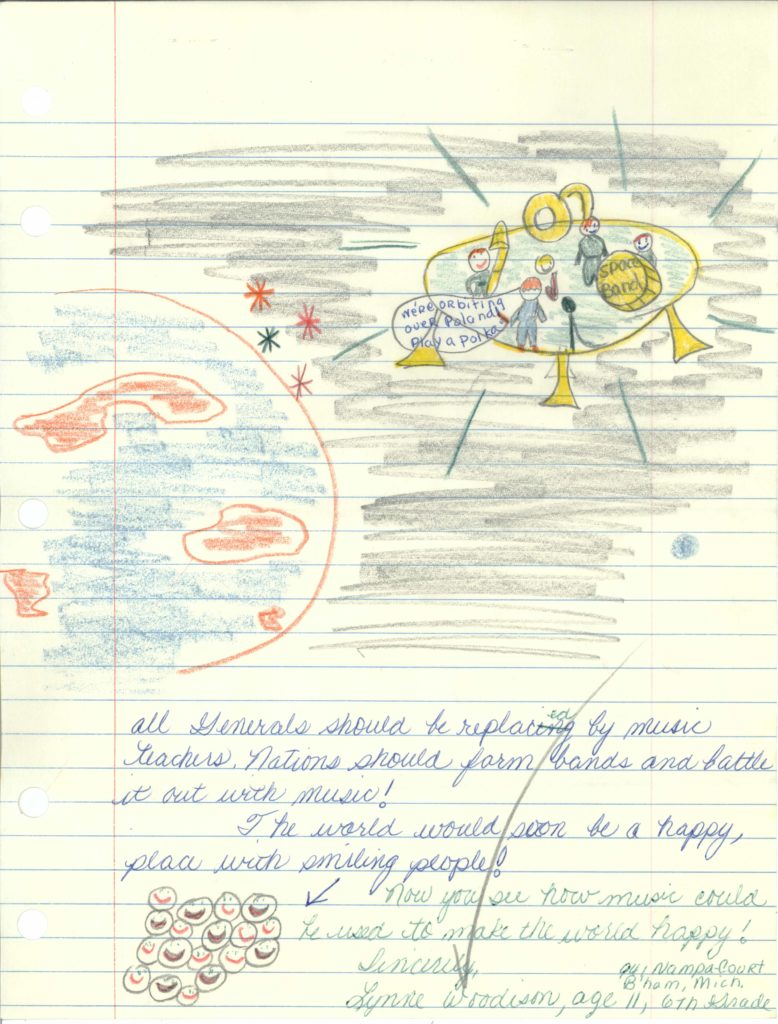
It is a sad reality that children in the 1960s were practicing ‘duck and cover’ drills in schools in the event of a nuclear attack. Children like Lynne Woodison would have been aware of the threat of nuclear war and of cold war tensions between the United States and the Soviet Union. Woodison’s solution to neutralize this threat and ease tensions? Music! Looks like a solid plan to me!
–Abbey, Archives
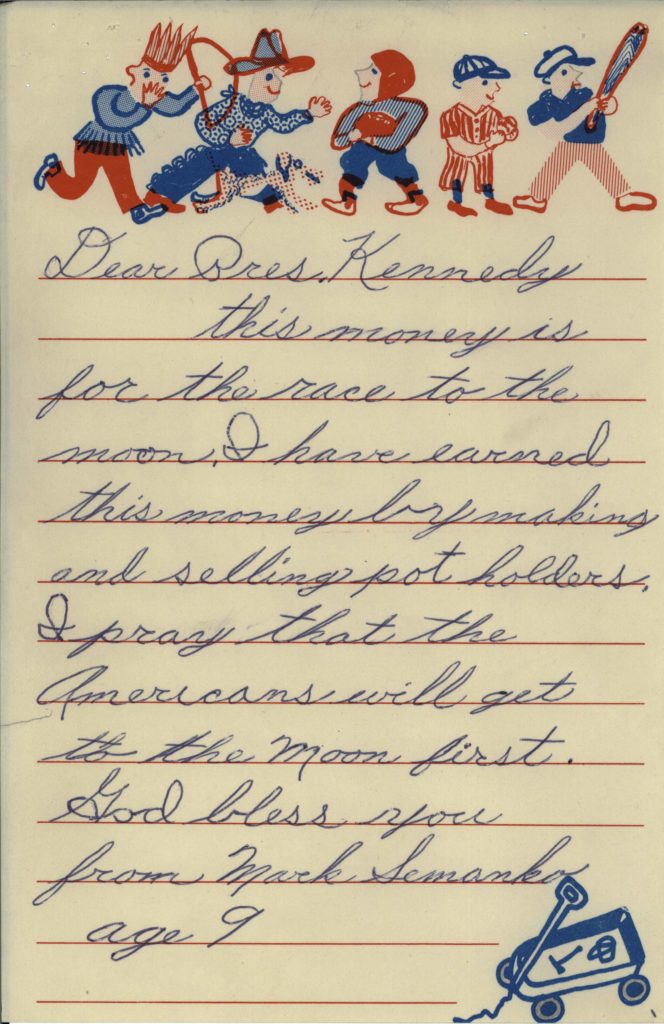
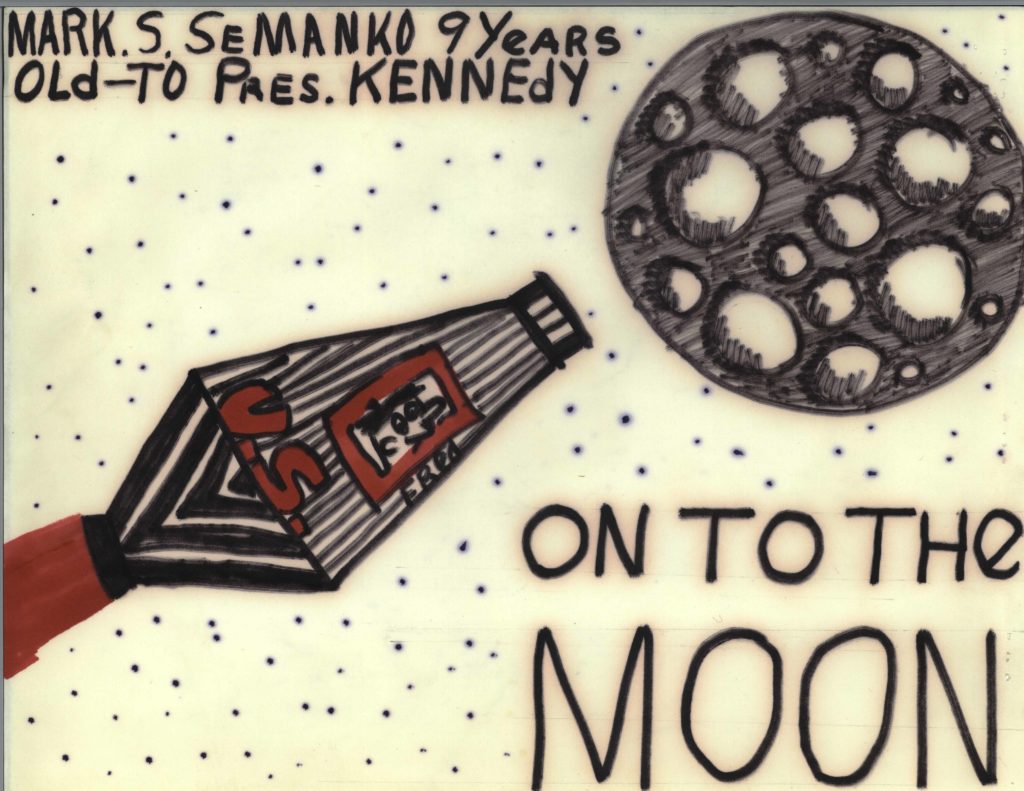
A trio of brothers showed their support for President Kennedy and the Space Race in 1962 by writing letters of encouragement to the President which included drawings. This drawing by Mark Semanko, age 9, features Fred Flintstone riding a rocket to the moon with the caption “On to the Moon.” The brothers also included some money to help provide financial support for the Space Race, showing the way some young Americans were ready to support Kennedy and the Space Race in any way they could.
–Savannah, Archives Intern
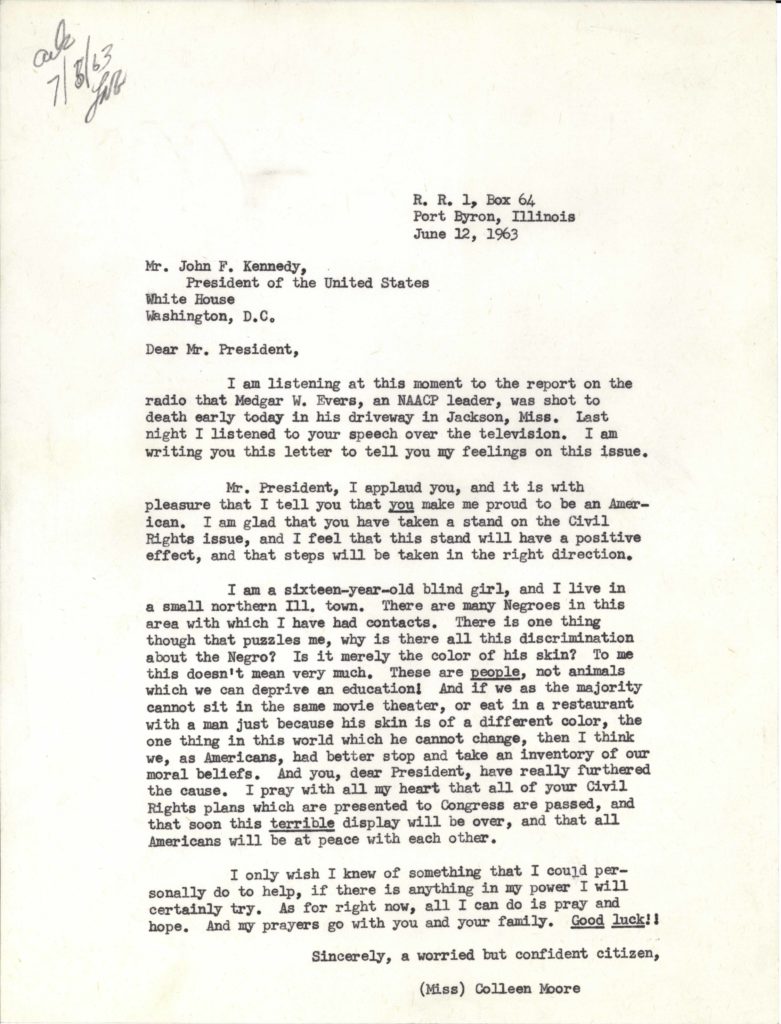
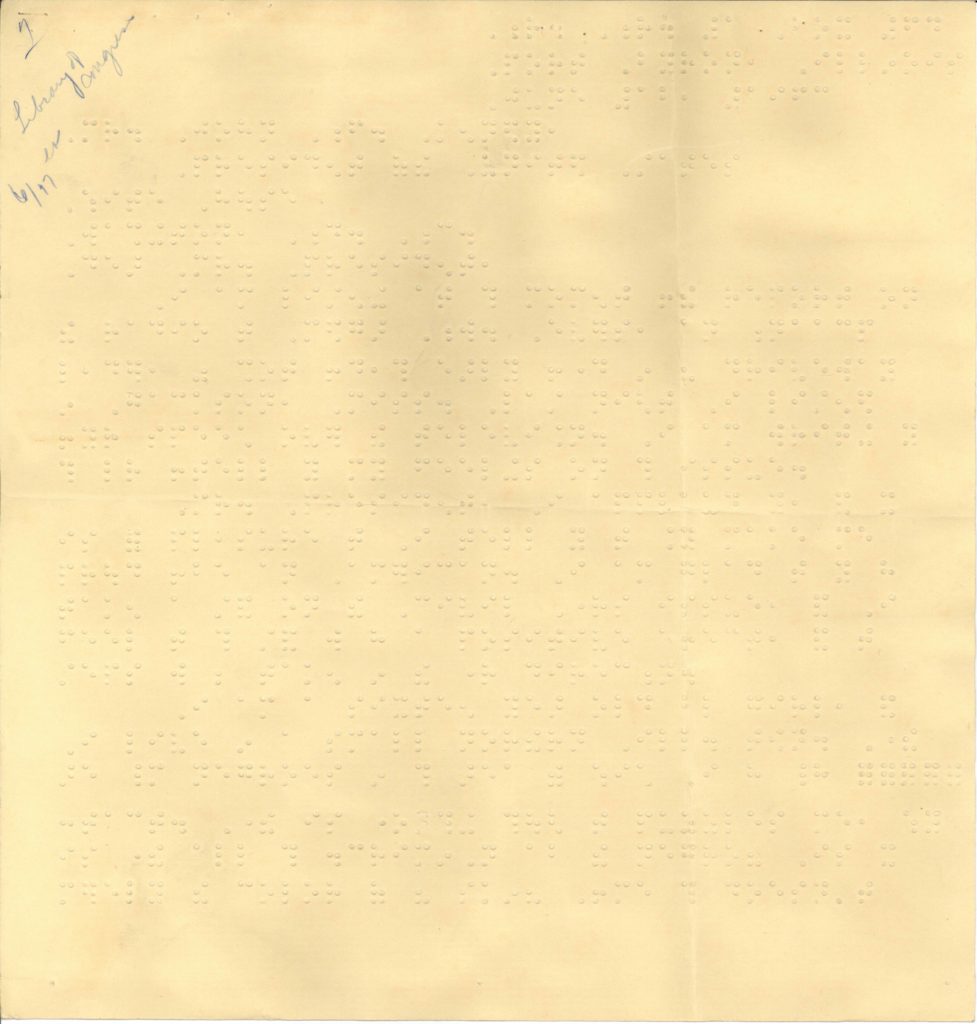
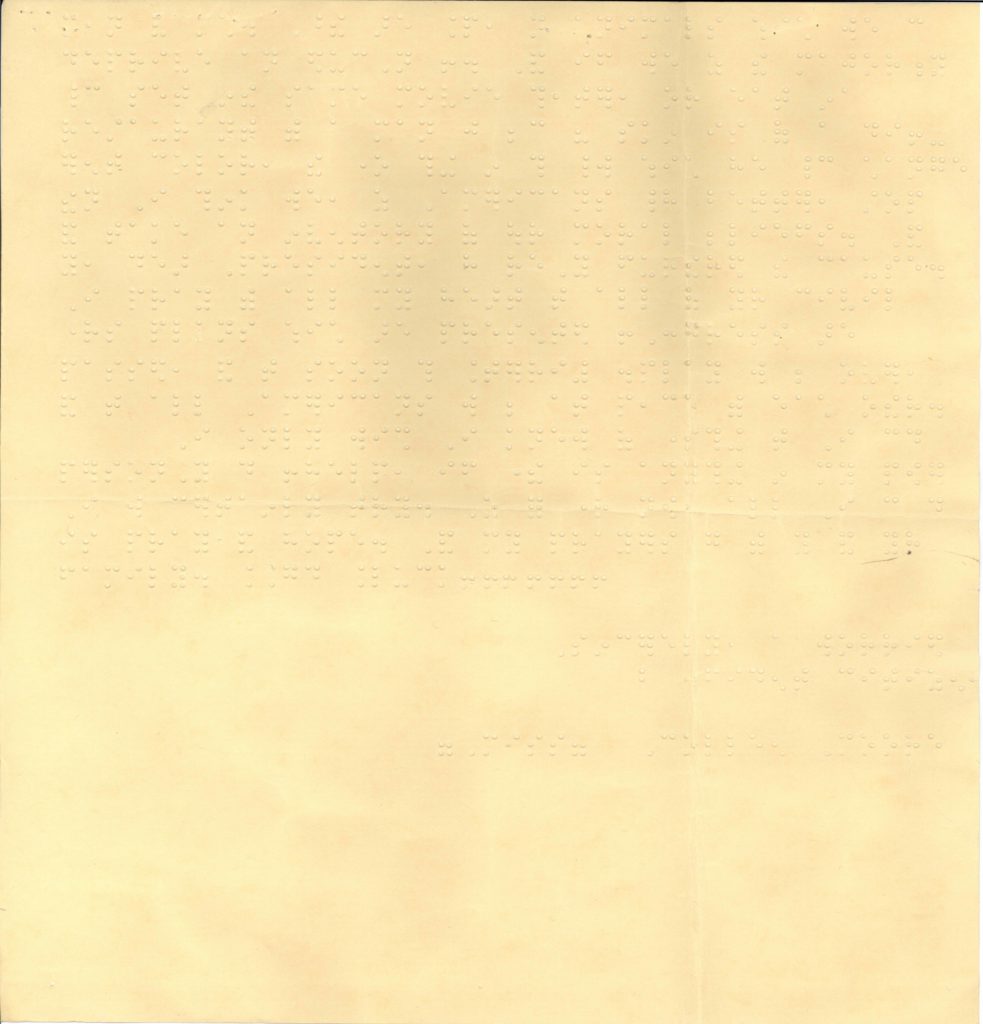
Sixteen-year-old Colleen Moore of Fort Byron, Illinois, was one of many young people who wrote to President Kennedy to express her anger over racial discrimination in the United States, calling it a “terrible display”. What makes her letter from June of 1963 unique, though, is that it was written in Braille, because Colleen was blind. After President Kennedy received her two-page letter, his staff sent it to the Library of Congress, which produced the typed transcription that accompanies her letter here. Other evidence in our collections shows that the President’s response was, in turn, transcribed into Braille before being sent to Colleen. The content of the letter alone provides valuable insight into the feelings of a teenage girl who was troubled by racial injustice, and its format adds another layer of richness to this piece of the historical record.
–Laura, Archives Digitization
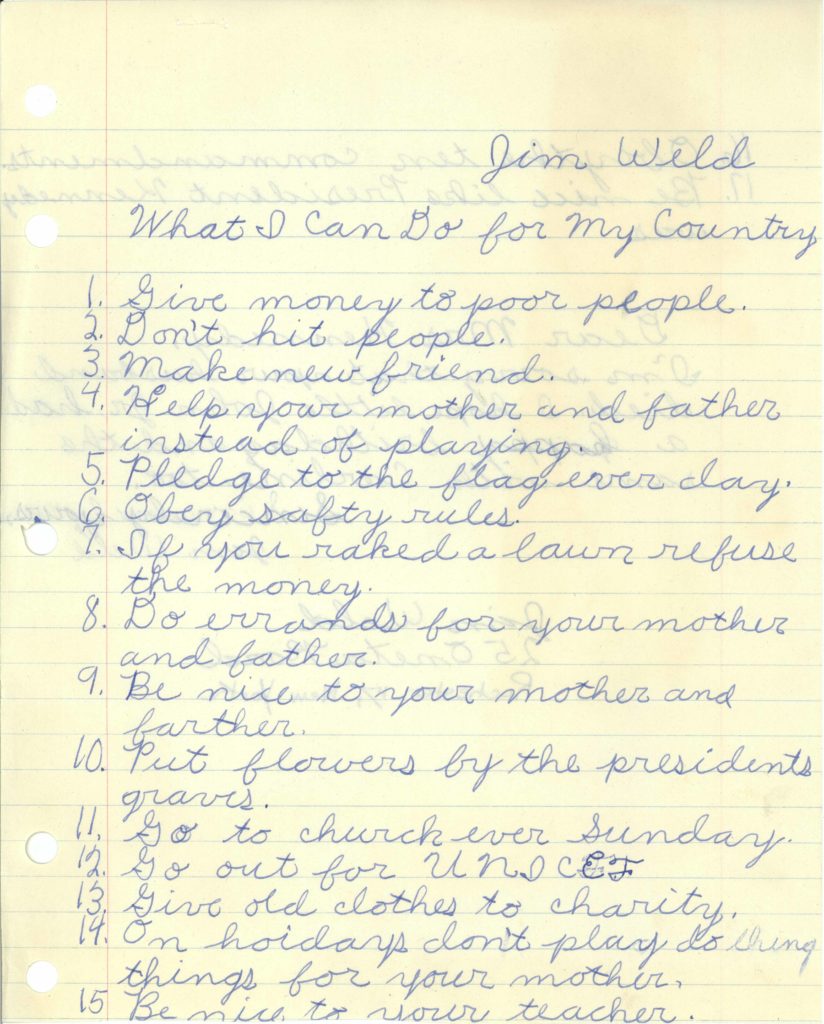
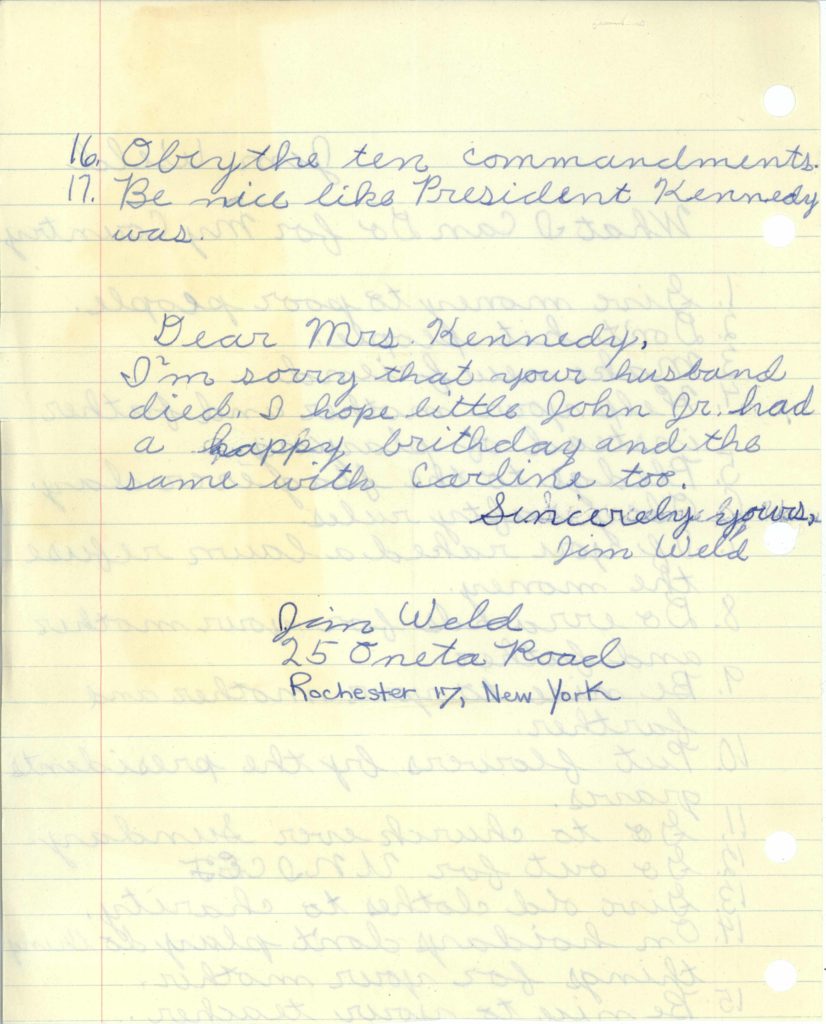
This letter caught my eye in the flood of mail that was sent to the White House following the death of President Kennedy. Young Jim Weld of Rochester, New York, submitted this list of what he will do for his country to honor the late President. I think we can all draw inspiration from his ideas on how to be a better person. Let’s make the world a kinder place by — as Jim suggests — donating to the poor, practicing non-violence, making new friends, and helping our parents.
–Christina, Archives
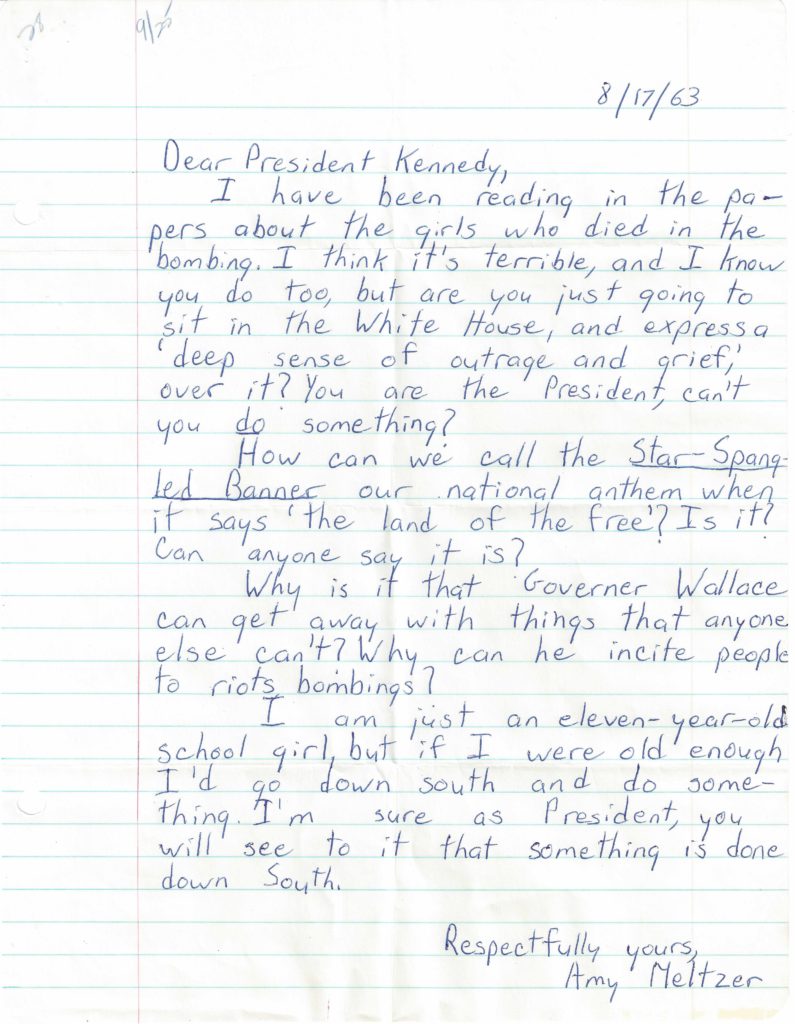
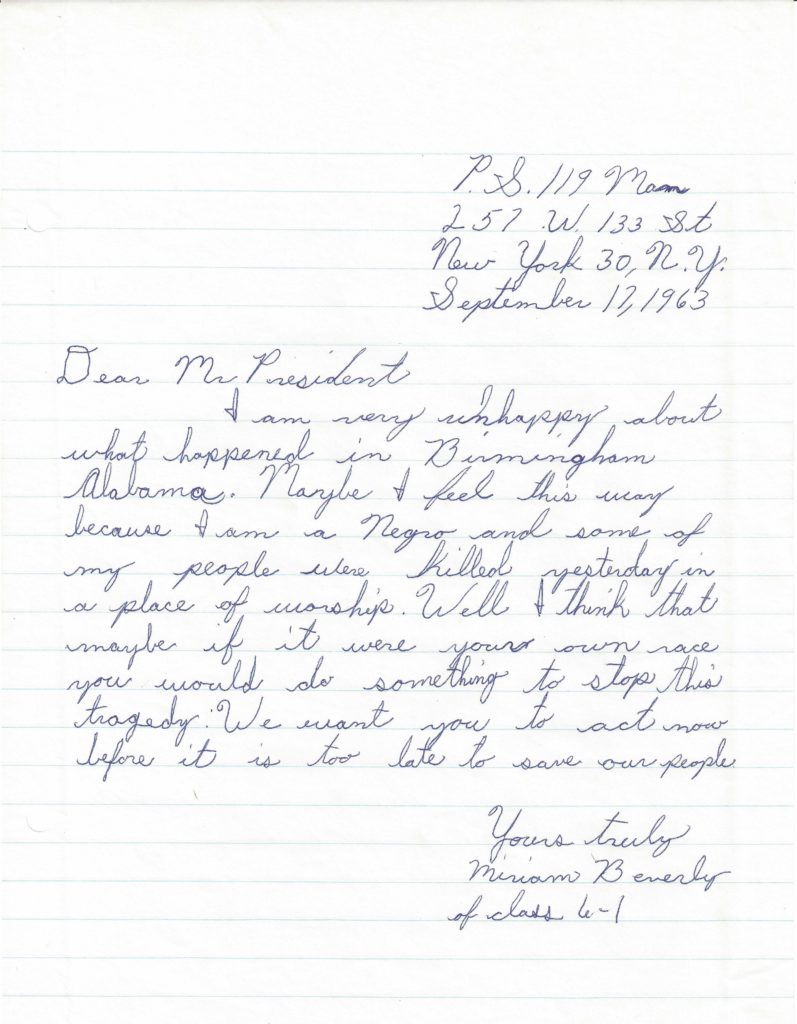
In September 1963, four Black children were murdered when white supremacists planted a bomb at the 16th Street Baptist Church in Birmingham, Alabama. Our archives hold thousands of letters sent to President John F. Kennedy after the bombing, and the letters from children are some of the most outraged. Middle-schoolers Miriam Beverly and Amy Meltzer both wrote to the President with their views on racist violence, and I’m struck by their urgency and the consistency their letters have with most of the other messages from kids, who often demanded: “You’re the President – why can’t you do something?”
–Stacey, Archives
Second grader Alan Hanscom relates in a charming way with President Kennedy on a couple of matters. He even got this letter written past bedtime! (A drawing that accompanied this letter is not shown.)
–Bill, Archives Digitization
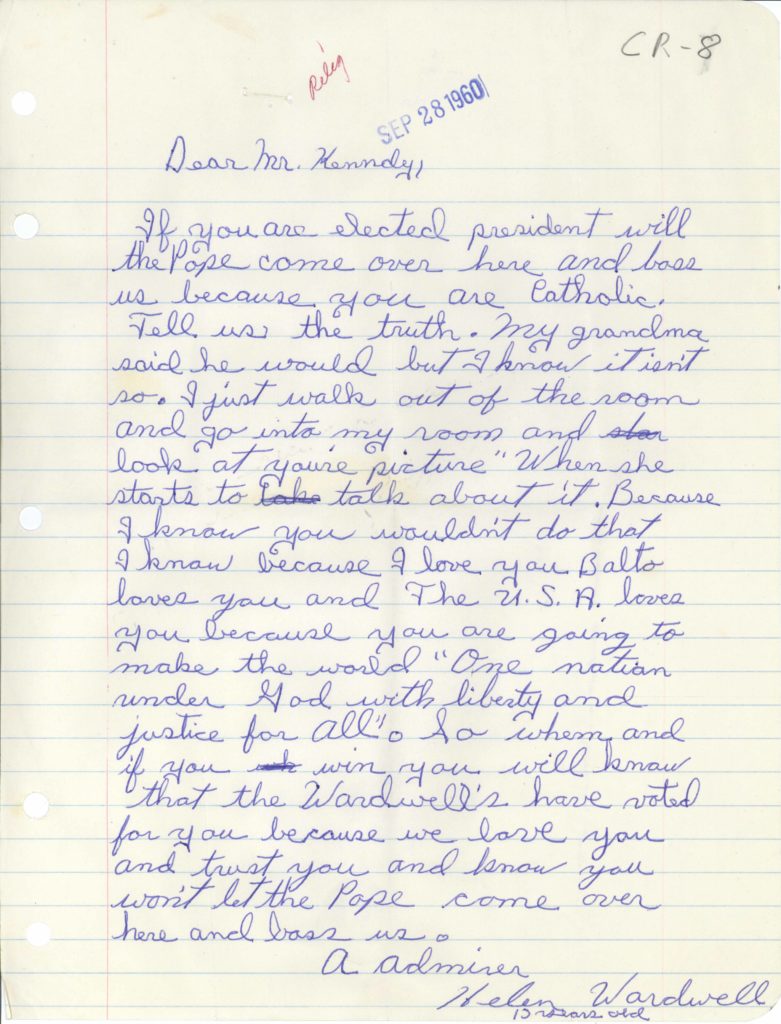
Thirteen-year-old Helen Wardwell from Baltimore, Maryland, wrote a letter of support to Senator John F. Kennedy during his 1960 presidential campaign. Her letter also highlighted the religious issue of the campaign when she asked: “will the Pope come over here and boss us because you are Catholic?” Kennedy faced anti-Catholic prejudice during his campaign, and at the time was only the second Catholic candidate to run for President. Helen, however, declared that she did not believe her grandma, who told her this. She signed off as an “admirer”.
–Kelli, Archives Digitization
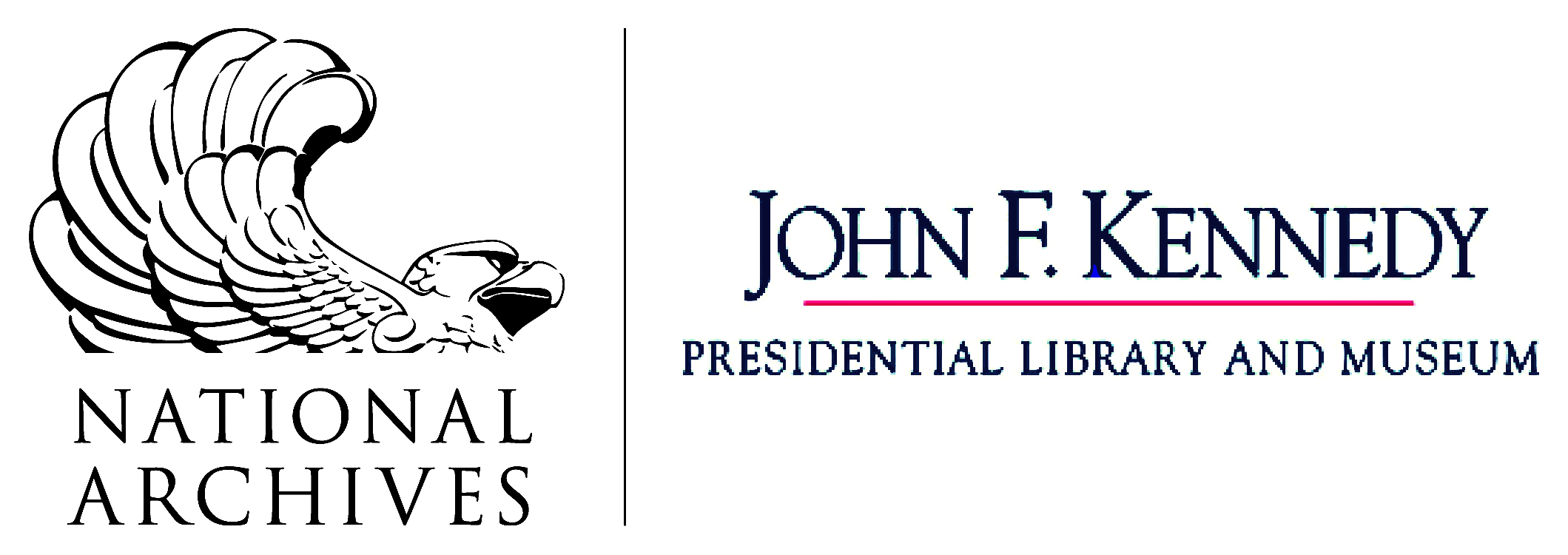
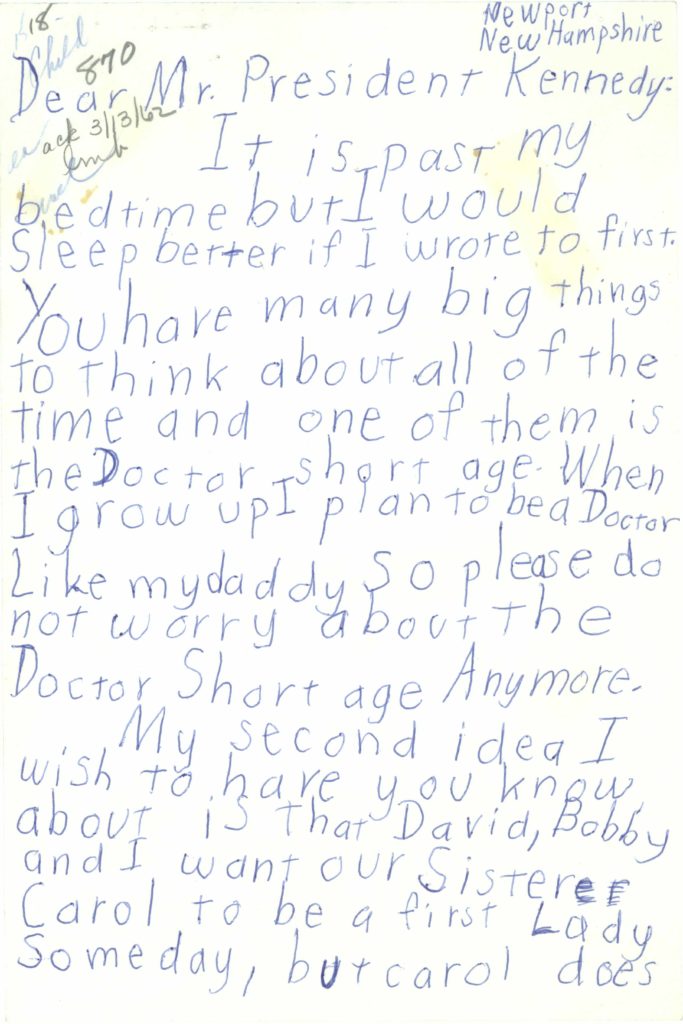
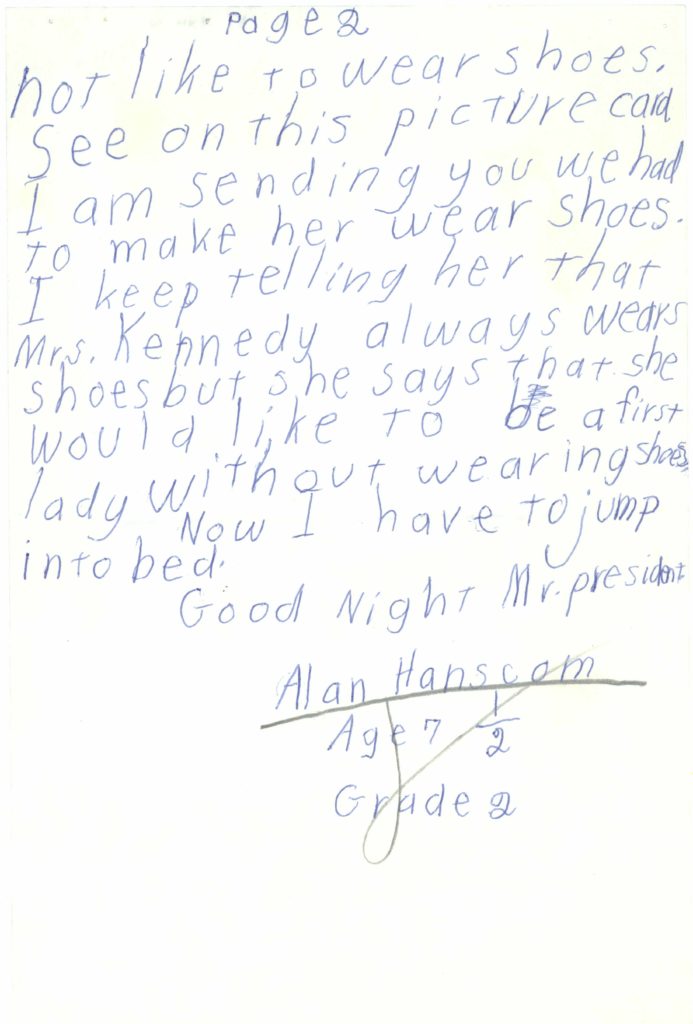
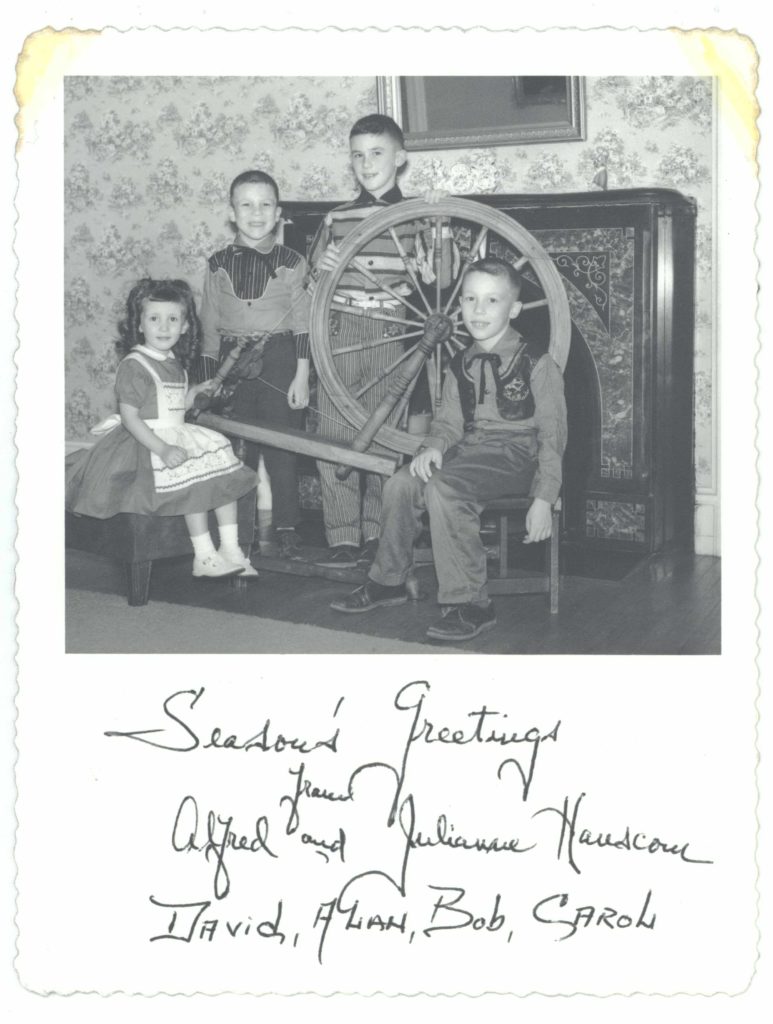
All these are very very moving and do show how much the people loved JFK…. I read the condolences letter from Jim Weld and I cried….
There is a great book titled “Kids Letters to President Kennedy” published in 1961 with a grouping of letters selected by Bill Adler…. Superb book and a great read… Highly recommended…
Thanks to the National Archives for posting them.
Children in all their innocence have more innate wisdom and heart than adults. When they take their time out to write to the president, they mean what they say with all their hearts and with no agenda. We adults could do this world a favor by just simply listening to the children.